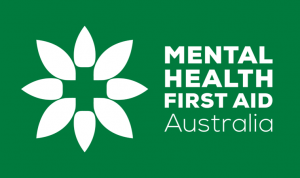
ISLAND Annual Surveys are coming soon!
From early October, ISLAND research participants will be emailed an invitation to undertake ISLAND annual surveys. These surveys are very important to the ISLAND Project, and we do appreciate you completing them for us. Those of you who complete your surveys each year are helping us understand the dementia risk profile of the Tasmania population and where we most need to take action. You are also helping us to track changes that occur in your responses over time. We are very interested in comparing changes (or improvements) that people make to their personal risk to how they perform over time in our online cognitive tests and changes in certain blood biomarkers. We hope to show that those who make the most improvements to their risk profile have the least deterioration in their cognition and less variation in their bloods - but we will only be able to do this if you complete your surveys each year. So please put about 45 minutes aside to do these for us in October. You are also taking an active role in your own health and wellbeing by keeping an eye on aspects of your lifestyle that can help maintain brain health and the whole ISLAND team says ‘thanks very much’. Please look out for your email in October and take the time to do your surveys. As ever, if you need any help the project team will be happy to hear from you via email to island@dementia.utas.edu.au
|

What is a happy brain?
Listen to our very own Associate Professor Jane Alty, one of our ISLAND Clinic Co-directors and Neurologist at the Royal Hobart Hospital talk about neurology, diagnosis and management of Alzheimer’s disease and how to have a happy and healthy brain. Follow this link to have a listen Many thanks to That’s What I call Science for the recording.
|

Depression and its link to Dementia
Depression is one of Australia’s top health problems. Any of us may experience it, so we should all know a little about how to recognise it. Recognising the signs is important in seeking help and in reducing the stigma that can be attached to depression. Depression is more than feeling down at times. It can have different presentations in different people, but it usually involves a persistent drop in mood, with or without a clear cause. People with depression may feel tired and can lose their appetite and interests. Some people with depression can become restless, irritable, have difficulty sleeping and concentrating. Some may stop wanting to be around others and some may feel they want to harm themselves. Depression can be hard to spot, especially in those who are used to putting on a brave face to get through their day. Older adults, especially males, are less likely to seek help for depression. In older adults, depression is also a risk factor for dementia. Despite increased understating of depression, it still carries a stigma which may prevent people from seeking help. People may think of their symptoms as a weakness, or that they shouldn’t burden others, whereas speaking up and having a conversation about problems actually shows strength. Correctly addressing depression, with the help of a health professional, can greatly improve quality of life as the rates of recovery are good. The Lancet Commission report on Dementia Prevention, Intervention and Care (2020) reported twelve modifiable risk factors for dementia, including depression. The report estimated that depression accounts for approximately 4% of total risk. Meaning that, if we could reduce rates of depression, there could be 4% fewer people with dementia. The risk related to depression is probably more important when experienced later in life than in early to mid-life. It is important to remember that not all people who experience clinical depression will develop dementia. Dementia can present with clinical features that mimic depression which can make diagnosis complicated. Clinically, depression may represent as dementia or dementia may pose as depression. Dementia and depression may even coexist. Therefore, it is crucial to identify the cause of a depressive state in older adults. Please seek advice from your General Practitioner if you are concerned about your mental health.
|

Support your own or someone else's mental health
Lifeline Tasmania offers a Mental Health First Aid course to teach us how to provide initial support to someone who is experiencing a mental health problem or crisis. You can learn about the signs and symptoms of common mental health problems and how to provide initial help. Check it out here You can also access Beyond Blue to learn more about how to support your own, or someone else's, mental health.
|